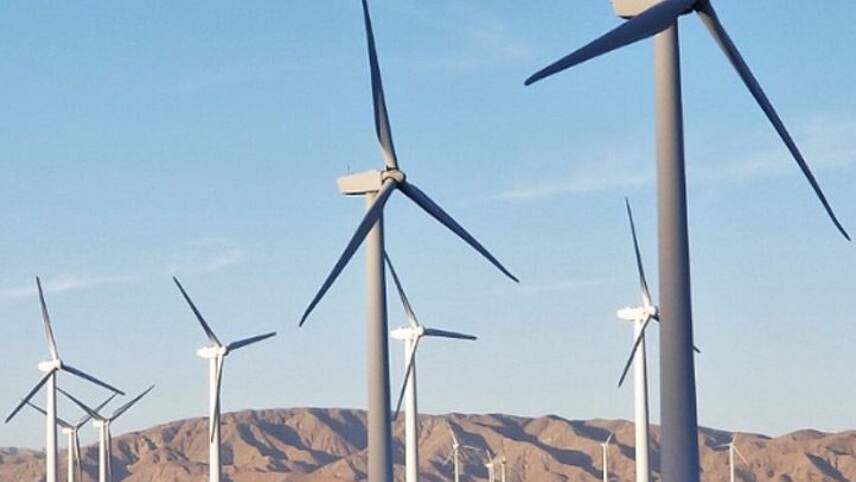Register for free and continue reading
Join our growing army of changemakers and get unlimited access to our premium content

The company's carbon-neutral strategy revolves around energy efficiency
The move will cover EY’s Scope 1 (direct) and Scope 2 (power-related) emissions om a global basis. The firm notably has 700 offices across 150 countries, collectively employing more than 280,000 staff.
EY said in a statement that it will not simply purchase offsets in a blanket fashion to reach carbon neutrality as soon as possible, but take a multi-pronged approach which also includes investment in renewable energy and energy efficiency measures.
On renewable energy, EY already sources renewable power through electricity tariffs for many of its markets. It is hoping to switch to 100% renewable energy in Texas and the UK this year – in Texas, through a Virtual Power Purchase Agreement (VPPA) financing the construction of two wind farms, and in the UK, through a direct contract with a portfolio of solar farms.
As for energy efficiency, EY has reduced absolute office-related energy emissions by 11% since 2017 despite expanding the business. This translates to a 25% in energy emissions per full-time employee, against a 2016 baseline.
Given that gaps in low-carbon policy and technology vary between nations, and that EY operates in many markets without strong infrastructure for renewable energy, the company is including offsetting in its carbon neutrality strategy. It will purchase credits which fund natural solutions like reforestation and afforestation projects. EY has notably been insetting for several years and has planted more than a million trees in India.
“As an organization that spans more than 150 countries, with varying views and ambitions on climate change, we recognise that [becoming carbon neutral this year] is no easy feat,” EY Global’s chairman and chief executive Carmine Di Sibio said.
“However, with over 284,000 EY people who are dedicated to our purpose of building a better working world, EY has a once-in-a-lifetime opportunity to take immediate action to create sustainable, inclusive growth for generations to come.”
In a bid to drive change beyond 2020 and beyond its four walls, EY will update and expand its global sustainability strategy this year, the company said in a statement.
The new strategy will contain measures to help clients reduce their own emissions, to decarbonise EY’s supply chains and to minimise transport emissions from the global business.
The race to net-zero
Off the back of the IPCC’s landmark report into climate change, which concluded that global emissions must hit net-zero by 2050 if the world’s temperature increase is to be capped at 1.5C, net-zero or carbon-neutral targets have gained traction among businesses and local and national policymakers alike.
As of December, 40% of the world’s annual GDP was covered by nations and regions that are discussing or have set legislative net-zero emissions targets, to be achieved by 2050 at the latest. Just six months prior, the proportion stood at 16%.
In the UK, which enshrined a 2050 net-zero target in law last summer, several businesses have committed to achieve carbon neutrality within shorter timelines. Some, such as Aldi UK and easyJet, have relied heavily on offsetting to reach net-zero as soon as possible. But the majority of corporates have set slightly longer timescales to enable investment in decarbonising their operations and value chains, positing offsetting as a smaller piece of the puzzle. Recently announced net-zero ambitions from big businesses include Sainsbury’s (2040), AstraZeneca (2025) and Microsoft (2030).
Local authorities, also, have been quick to pledge to outpace national Government. More than 60 councils across the UK have declared a climate emergency, with pre-2050 net-zero goals now covering locations such as Oxford, Nottingham, Birmingham, Leeds, Edinburgh and Glasgow.
edie Explains: Net-zero business
Sustainability and energy professionals looking to develop or implement net-zero strategies for their organisations now have access to a free-to-download guide which answers key questions including: How does your business need to comply and what is the UK legislative understanding of net-zero? What are the big-ticket issues such as carbon offsetting and collection emissions data? And what considerations should be taken when attempting to meet net-zero, and should you consider scope 1,2, and 3 emissions?
Download the guide, produced in association with Centrica Business Solutions, by clicking here.
Sarah George


According to the marketforces website E&Y is working on the Adani coal mine project – a huge and unnecessary new coal mine being built very close to the Great Barrier Reef. Many banks refused to fund it, accountancy and legal firms should refuse to work on it. It is great to see that E&Y is taking this step but if they really want to make a difference to the amount they contribute to carbon emissions they should look at their internal policies on who they are working with and refuse to work on any new coal mines. https://www.marketforces.org.au/info/key-issues/theadanilist/